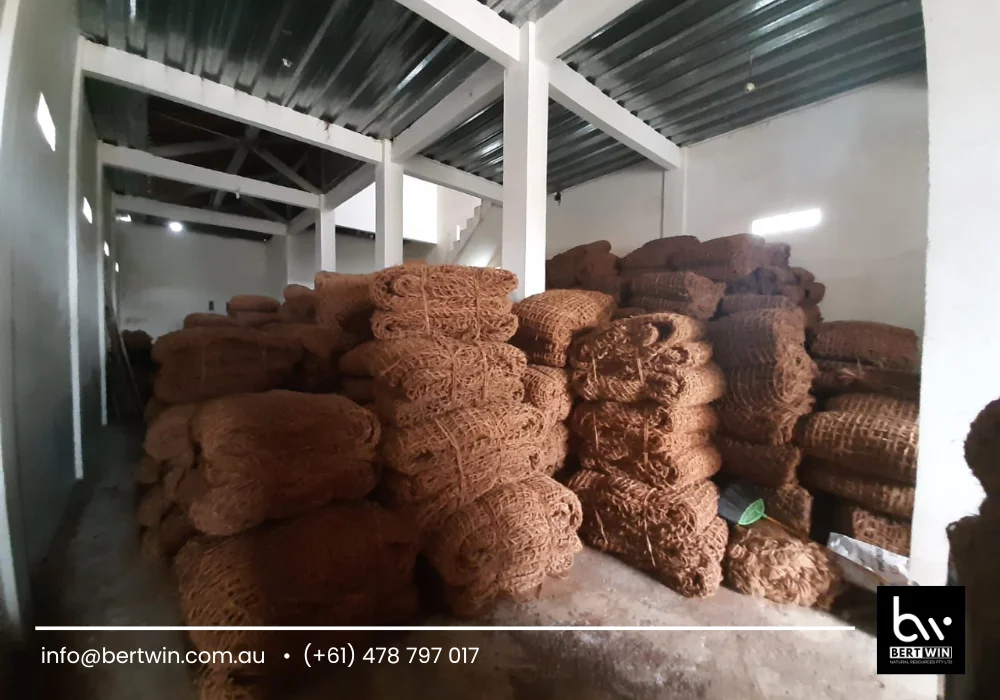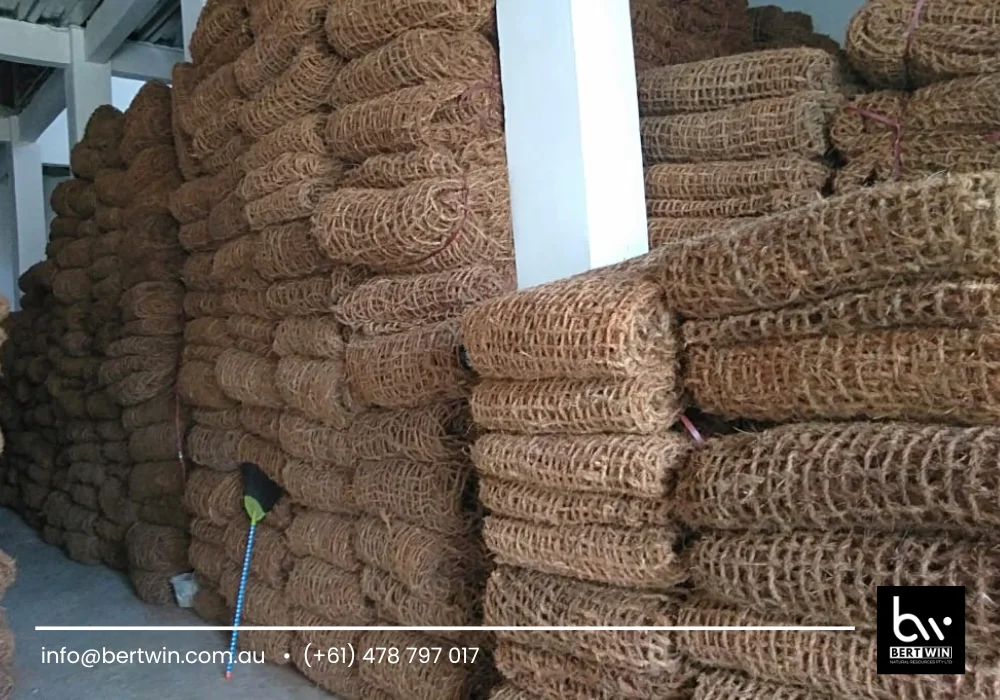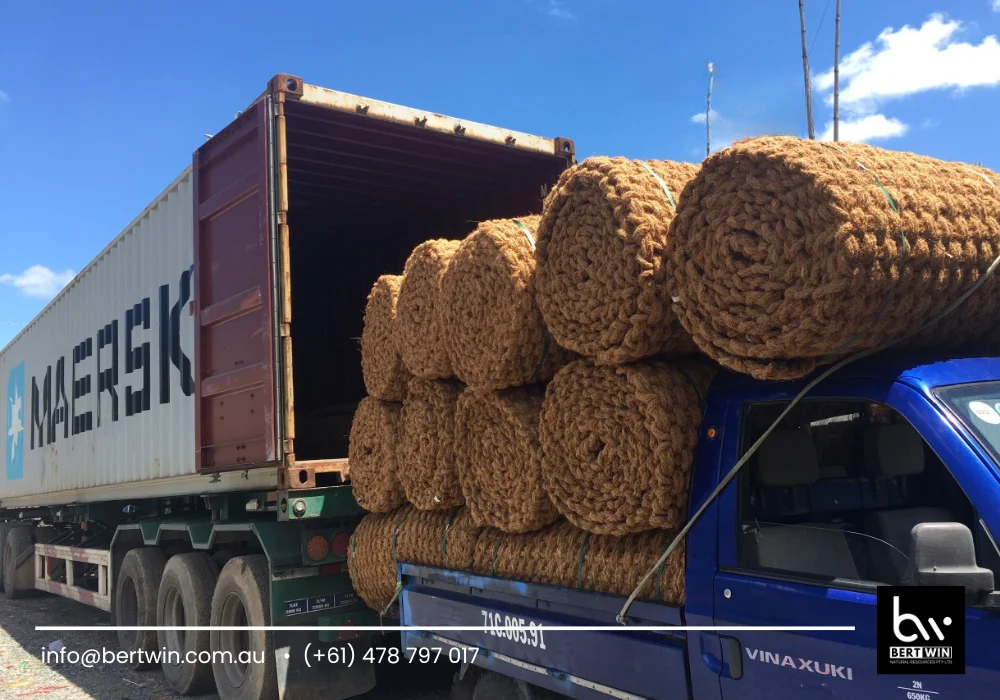When it comes to designing safe and environmentally friendly play areas, coco mesh for playground is an innovative solution gaining attention. Made from the natural fibers of coconut husks, coco mesh provides a durable, eco-friendly alternative to traditional playground surfaces.
With its natural cushioning, resilience, and biodegradability, coco mesh enhances the safety and sustainability of playgrounds while blending seamlessly into outdoor landscapes. Let’s explore why coco mesh for playground surfaces is a choice worth considering.

What Is Coco Mesh?
Coco mesh, also known as coir netting, is crafted from the fibrous outer shells of coconuts. These fibers are woven into sturdy, flexible mats or nets used for various purposes, including erosion control, gardening, and as a surface for playgrounds.
For playgrounds, coco mesh offers a natural, slip-resistant texture that ensures safety for children while providing an eco-friendly alternative to synthetic materials.
Benefits of Coco Mesh for Playground Surfaces
1. Eco-Friendly and Sustainable
Coco mesh is made from renewable coconut husks, a byproduct of the coconut industry. Its biodegradable properties make it an excellent choice for reducing waste and environmental impact. Unlike synthetic materials, it decomposes naturally over time without leaving harmful residues.
2. Safe and Child-Friendly
Safety is a top priority in playground design. Coco mesh offers natural cushioning, reducing the risk of injuries from falls. Its non-slip surface also enhances traction, making it safer for children to run and play.
3. Durable and Resilient
Despite being a natural product, coco mesh is highly durable. It can withstand heavy foot traffic and varying weather conditions, making it suitable for both indoor and outdoor playgrounds.
4. Blends with Natural Environments
The earthy tones and natural texture of coco mesh make it an aesthetically pleasing choice. It complements the surrounding greenery, enhancing the visual appeal of outdoor play areas.
5. Cost-Effective and Low-Maintenance
Coco mesh is affordable to install and requires minimal maintenance compared to synthetic surfaces. Its durability ensures a long lifespan, reducing replacement costs over time.

Applications of Coco Mesh in Playgrounds
1. Ground Cover
Coco mesh is commonly used as a surface material for playgrounds, providing a stable and safe ground cover. Its texture minimizes slips and enhances grip, ensuring a secure play environment.
2. Erosion Control
For playgrounds on sloped or uneven terrain, coco mesh helps prevent soil erosion. Its fibrous structure holds the soil in place, maintaining the integrity of the playground’s foundation.
3. Pathways and Borders
Coco mesh can also be used to define pathways and borders within playgrounds, creating a visually organized space that’s easy to navigate.
Why Choose Coco Mesh Over Traditional Materials?
1. Versus Rubber Surfaces
Rubber playground surfaces are durable but often made from synthetic materials that are not eco-friendly. Coco mesh offers similar durability with the added advantage of being biodegradable and sustainable.
2. Versus Artificial Turf
Artificial turf may look like grass, but it’s made of synthetic fibers that contribute to microplastic pollution. Coco mesh, on the other hand, is entirely natural and free from harmful chemicals.
3. Versus Sand or Wood Chips
While sand and wood chips are natural options, they often require frequent replenishment and can be uneven or unstable. Coco mesh provides a more consistent and durable surface.
How to Install Coco Mesh for Playground Use
Step 1: Prepare the Ground
Clear the area of debris and level the surface to create a stable foundation for the coco mesh.
Step 2: Lay the Coco Mesh
Unroll the coco mesh over the prepared area, ensuring even coverage. For larger playgrounds, overlap the edges of the mesh slightly to prevent gaps.
Step 3: Secure the Edges
Use eco-friendly stakes or pins to secure the edges of the coco mesh to keep it in place, especially in high-traffic areas.
Step 4: Add an Optional Base Layer
For added cushioning, consider laying a base of sand or soil beneath the coco mesh.

Conclusion
Coco mesh for playground surfaces is a game-changer in sustainable design. Its eco-friendly properties, durability, and safety features make it an ideal choice for creating playgrounds that are kind to both children and the environment.
By choosing coco mesh for playground, communities can reduce their environmental footprint while providing safe and visually appealing play areas. Whether you’re planning a new playground or upgrading an existing one, coco mesh offers a sustainable, cost-effective, and reliable solution that ticks all the right boxes.
FAQs
1. What is coco mesh made of?
Coco mesh is made from the natural fibers of coconut husks, a byproduct of the coconut industry.
2. Is coco mesh safe for playgrounds?
Yes, coco mesh is safe. Its cushioning properties and non-slip surface reduce the risk of injuries from falls.
3. How long does coco mesh last?
Coco mesh is highly durable and can last several years, depending on environmental conditions and maintenance.
4. Can coco mesh withstand heavy use?
Yes, coco mesh is designed to handle heavy foot traffic, making it suitable for playgrounds with high activity levels.
5. Where can I purchase coco mesh for playgrounds?
Coco mesh is available from suppliers specializing in eco-friendly materials or landscaping products.
For further information, you may contact WhatsApp at (+61) 478797017 or via email at info@bertwin.com.au.
Read More : Bulk Wood Pellet Near Me – Sustainable Heating Fuel in Australia
